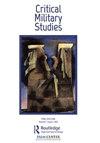无人机战争中的受害者和创伤
Q1 Arts and Humanities
引用次数: 3
摘要
摘要:军队中的无人机操作员越来越被认为是他们所面临的巨大压力和创伤的潜在受害者。在这种创伤的情况下,提供和获得足够的心理健康护理对于最大限度地降低患创伤后应激障碍(PTSD)等疾病的风险至关重要,道德伤害或高度的情绪困扰。通过将心理学研究和数据与批判性女权主义安全研究相结合,本文试图在无人机战争的更广泛背景下,确立无人机操作员作为创伤受害者的有效性。这篇文章的目的不仅是强调无人机操作员所遭受的创伤,还公开解决持续存在的污名和阻碍他们寻求足够心理健康护理的因素。暴露在创伤中的无人机操作员会被同行进一步污名化和阉割,导致对可用心理健康支持的接受减少。通过采用性别化的方法,文章探讨了这种污名是如何使无人机操作员所遭受的许多经历和创伤无效的,但又是如何被男性化和阉割的思想所构建的。认识到这种耻辱和阉割不仅对理解军事秩序和国家暴力的男性化动态很重要,而且对解决无人机战争中更广泛的创伤问题也至关重要。本文章由计算机程序翻译,如有差异,请以英文原文为准。
Victimhood and trauma within drone warfare
ABSTRACT Operators of Unmanned Aerial Vehicles (UAVs) within the military have increasingly been recognized as potential sufferers of immense stress and trauma as a result of the conditions they are exposed to. In cases of such trauma, the provision for and access to sufficient mental health care is vital to minimize risks of developing conditions such as Post-Traumatic Stress Disorder (PTSD), moral injury or high emotional distress. Through integrating psychological studies and data with critical feminist security studies, this article attempts to establish the validity of drone operators as victims of trauma within the broader context of drone warfare. The aim of this article is to not only highlight this trauma suffered by drone operators, but to also openly address the ongoing stigma and factors that prevent them from seeking adequate mental health care. Drone operators exposed to trauma are further stigmatized and emasculated by their peers, resulting in a decrease in uptake of available mental health support. Through adopting a gendered approach, the article explores how this stigma invalidates much of the experiences and trauma suffered by drone operators, but furthermore is structured by ideas of masculinity and emasculation. Recognizing this stigma and emasculation is not only important for understanding military order and the masculinized dynamics of state violence, but vital for addressing the wider issues of trauma in drone warfare.
求助全文
通过发布文献求助,成功后即可免费获取论文全文。
去求助
来源期刊

Critical Military Studies
Arts and Humanities-History
CiteScore
1.90
自引率
0.00%
发文量
20
期刊介绍:
Critical Military Studies provides a rigorous, innovative platform for interdisciplinary debate on the operation of military power. It encourages the interrogation and destabilization of often taken-for-granted categories related to the military, militarism and militarization. It especially welcomes original thinking on contradictions and tensions central to the ways in which military institutions and military power work, how such tensions are reproduced within different societies and geopolitical arenas, and within and beyond academic discourse. Contributions on experiences of militarization among groups and individuals, and in hitherto underexplored, perhaps even seemingly ‘non-military’ settings are also encouraged. All submitted manuscripts are subject to initial appraisal by the Editor, and, if found suitable for further consideration, to double-blind peer review by independent, anonymous expert referees. The Journal also includes a non-peer reviewed section, Encounters, showcasing multidisciplinary forms of critique such as film and photography, and engaging with policy debates and activism.
 求助内容:
求助内容: 应助结果提醒方式:
应助结果提醒方式:


